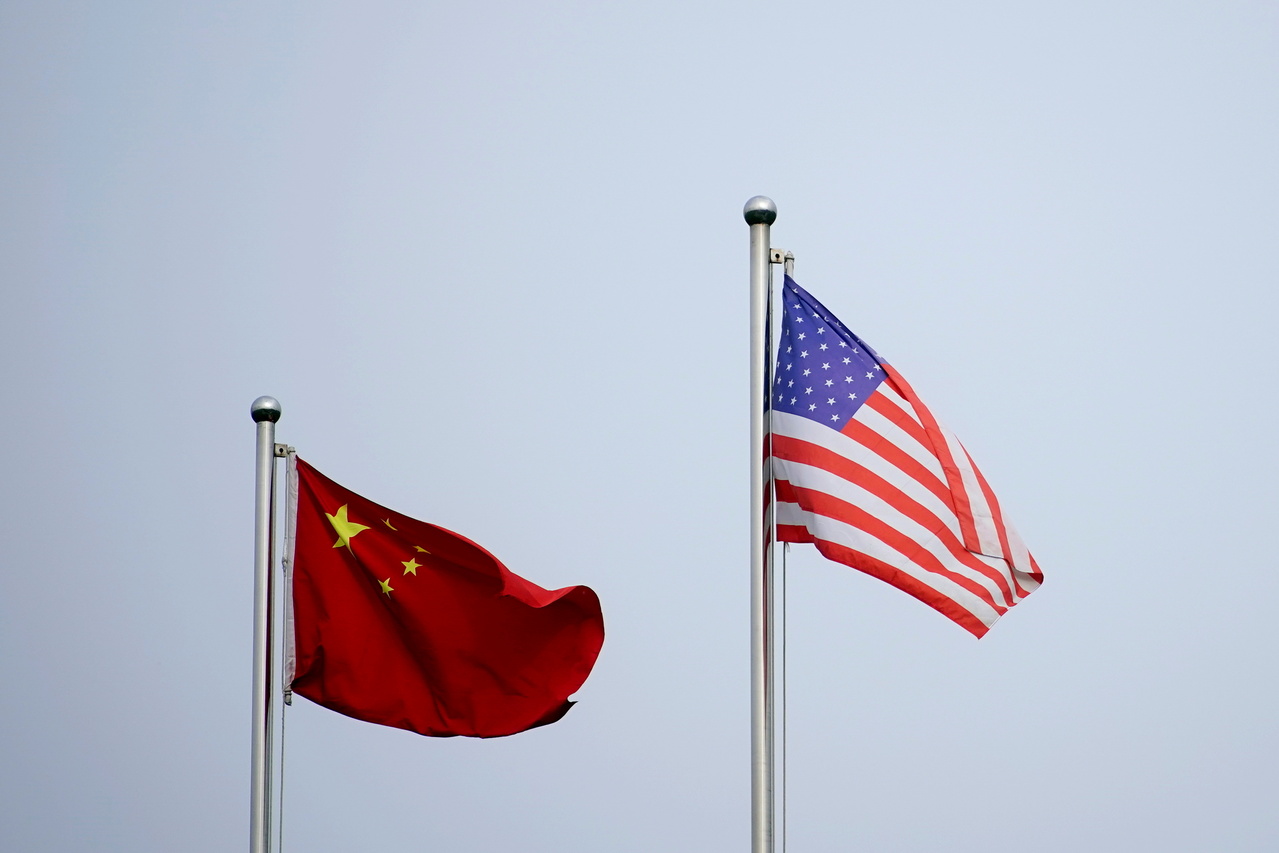Everything is at stake with US-China tensions: PM Lee
Sign up now: Get ST's newsletters delivered to your inbox

US and China have to reconcile their international stances with their domestic political opinions.
PHOTO: REUTERS
SINGAPORE - If the United States and China clash, "everything is to be lost", said Prime Minister Lee Hsien Loong.
Speaking on tensions between the two major powers at the US Chamber of Commerce's Global Forum on Economic Recovery on Wednesday (May 19), he said that everything is at stake for the rest of the world if the relationship turns sour and leads to conflict.
This will be a bad outcome for the US and China too, he added.
"Because both America and China are countries with enormous economic and technological power, with high-tech capabilities, weaponry, nuclear capabilities; and modernised armed forces, in the case of the PLA (China's People's Liberation Army), and the most powerful armed forces in the world, in the case of the US Armed Forces. But not so powerful that when you go to war, you do not take casualties, and expect to absorb a lot of damage," he said.
"Therefore, it is necessary for both countries to decide to (not only) work together and accept each other as they are, but work together and find common ground where they can cooperate. And there are many."
While climate change is one area, there are others too, such as nuclear non-proliferation, public health, and future pandemics, he said.
The global trading system has to be stable in order for countries to import, export, trade and develop their business and prosperity. Hence the two countries have to work together, but it means they have to reconcile their international stances with their domestic political opinions, he said.
"And both have domestic political opinions, even the Chinese. And (both will have to) overcome the nationalist instinct to say 'we will look after our country's interests, but we will do so by cooperating with other countries. Whether or not we fully trust them, and whether or not they are our bosom friends, they have to be our partners on this planet'."
He observed that this is "a big deal" for China, because the Chinese have reached a point where they feel that they have not only stood up and become wealthy, but also want to become strong and be acknowledged as such.
"But when you are strong, you are not the only strong guy in the world. You have to know how to have that strength accepted by others over the long term, as the US has been able to do since the Second World War.
"You have the most powerful fleets and aircraft and army, but you have a lot of friends around the world, and people work with you not just because they are afraid of you, but because they think that there is room for them, you leave room for them, and you are doing good for the world, generally."
For the Chinese to adopt such an attitude takes time, he said. On the part of the US, it has to accept that China is a fact, it is not going to disappear, and the US has to work with it.
"You can try to influence it, but you cannot convert it. And it is not going to become like a European country, much less like the United States of America," PM Lee said.
"It is a big psychological thing for America to accept, and it takes great statesmanship to make it work and to make Americans go along with such a policy, but that is what you need.
"If you do not do that, and the two countries clash, neither is going to curl up and die. It is not like with the Soviet Union. There is no Potemkin village in China; it is real. The vitality, the innovation, the drive, the prosperity, the determination to get ahead. And neither is America a declining and fading society.
"So somehow, (both countries) have to come together, and that is the responsibility of statesmen on both sides."
PM Lee added that while Singapore and other South-east Asian nations would very much like the US to rejoin the Comprehensive and Progressive Agreement for Trans-Pacific Partnership (CPTPP), he does not think this is on the cards.
While the idea of the Biden administration joining the CPTPP trade deal - an agreement formed by the 11 other countries negotiating the TPP after former president Donald Trump withdrew the US from the deal during his first week in office - has been floated, significant barriers remain, from domestic considerations within the US, to disagreements over issues negotiated under the agreement.
PM Lee said that cooperation on the digital economy - to establish norms and standards such as data transfer, data transparency and accountability, and where data has to be hosted - are things which are not so contentious but which would be important in the new economy.
"Or cooperation on the green economy, green financing, or sustainability standards, these are things which we hope the US will have the bandwidth to put on the agenda."


